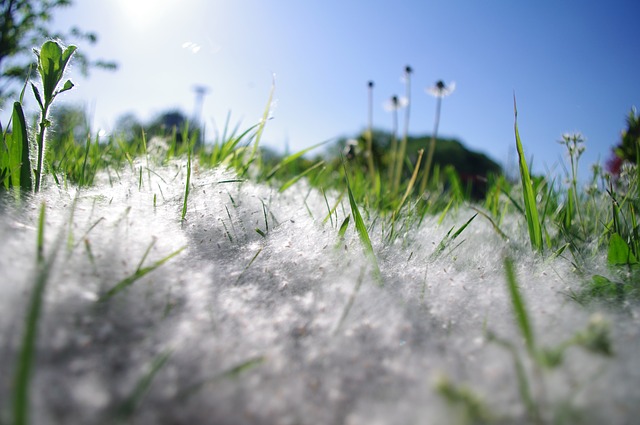Managing spring allergies can be more difficult for seniors. From medication side effects to exacerbating chronic illnesses, here’s what caregivers should know.
Itchy, watery eyes, uncontrollable sneezing, and nasal congestion can all be symptoms of seasonal allergies. For seniors who live in the south, where flowering trees and pollen-filled flowers are blooming, allergy season can be a miserable time of year. While allergies can be uncomfortable for people of all ages, they may have a more serious impact on the health of older adults.
Complicating factors, such as chronic illnesses and side effects of allergy medications, can make it difficult for older adults to get the relief they need. Here’s what caregivers should know to keep a senior loved one safe during allergy season.
Seniors and Spring Allergy Season
What causes allergies? It’s a question most allergy sufferers ask. Allergies are the body’s reaction to the immune system becoming sensitized to something in the environment.
Experts say allergies are especially dangerous to older adults for a variety of reasons. A leading concern is that allergy symptoms and nasal congestion can cause shortness of breath for seniors who have a chronic disease.
Another concern is the use of antihistamines, a popular over-the-counter medication many people buy to self-treat allergies. A common side effect of antihistamines is increased blood pressure. This can be dangerous for seniors who have cardiac disease or chronic obstructive pulmonary disease (COPD).
What is Triggering a Senior Loved One’s Allergies?
It’s helpful to know just what might be triggering an allergy attack in a senior loved one. Some of the most common allergy triggers include:
- Pollen, mold, grass, and dust
- Chlorine in swimming pools
- Smoke from an outdoor fire
- Insect bites and stings
While many of the symptoms associated with spring allergies can be present year-round, they often peak in the springtime.
4 Ways to Safely Manage Spring Allergies
- Control the environment: During peak allergy season, keeping the windows closed so pollen and dust have a more difficult time getting inside is one way to prevent allergies from getting out of control. Instead of open windows, use a fan or air conditioner to cool the house. The same is true for riding in a car. Keep the windows closed and the air conditioning on.
- Avoid outdoor exposure: While no one wants to be cooped up indoors when spring finally arrives, limiting time spent outdoors during peak allergy season helps prevent exposure to potential triggers. If your senior loved one has to go outside, help them take a few precautionary steps. Wearing a mask across their mouth and nose is one. Another is changing clothes and shoes in the garage or mud room before coming back inside. This can reduce the amount of pollen that makes its way into the house.
- Use a weather app: Paying attention to when the pollen count will be high is easier with a weather app. Many local television stations have weather apps so viewers can receive weather or pollen alerts. If your senior loved one doesn’t have this option, The Weather Channel and Yahoo! Weather are two national weather apps to explore.
- Work closely with your doctor or allergist: Pinpointing the source of your aging loved one’s allergies is one of the best ways to learn how to treat them. Talk with your senior family member’s primary care physician to see if they recommend seeing an allergist for testing.
Follow Our Blog!
If you found this article to be interesting and helpful, we encourage you to bookmark the Legacy Senior Living Blog and stop back often. We update our blog each week with new information and resources for caregivers and older adults.

